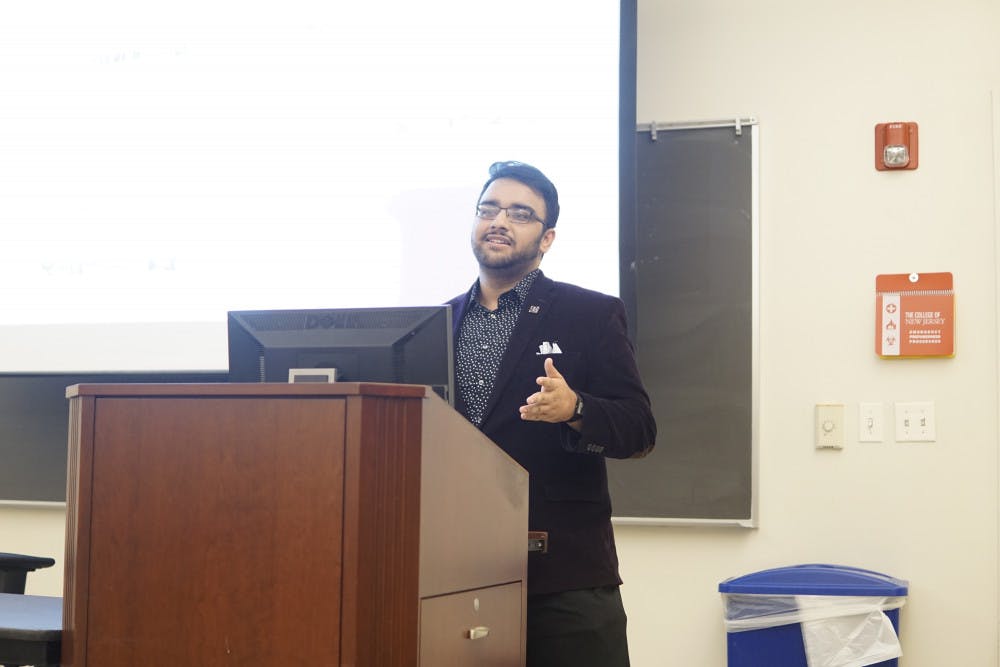By Camille Furst
Staff Writer
The Muslim Student Association hosted a discussion titled “Islam in the Media” on Sept. 26 in the Social Sciences Building.
The discussion was part of MSA’s general meeting for students to learn more about Islam and the discrimination Muslims face on a daily basis.
Hammad Mohammad, a senior sociology major and a member of MSA, led a discussion on the often negative media attention Muslims face. He said that the American media distorts the portrayal of Muslims, and often fails to mention tenants of the Muslim faith that reflect the true goals of the religion.
The third of the five pillars of Islam is charity, which includes supporting and caring for others.
“They don’t highlight the fact that we give out charity and we share with people less fortunate than us,” Mohammad said.
He then presented different instances in which Islam has been misrepresented in the media and popular culture, and showed the audience photographs of the Kardashians wearing hijabs.

“Appropriating the culture does not have a reflection of the culture itself,” Mohammad said. “It has a reflection on the person appropriating it. Appreciate the culture rather than appropriate it.”
Mohammad has been personally affected by harmful stereotypes that surround his religion and culture. The morning that Osama bin Laden was killed, his classmates said that they were “sorry for (his) loss.”
“At such as young age, the media affects us so much,” Mohammad said.
Mohammad has also been pulled aside for questioning by American security at an international airport in Dubai.
“Even this far out from the United states, I’m still experiencing aggression,” Mohammad said. “(This is) not just Muslims but groups worldwide — they’re constantly under a microscope.”
Nayomi Torres, a senior history major, shared her knowledge and reaction toward the discrimination of Muslims across the globe.
“Two girls in France were banned from schools because of wearing a hijab,” Torres said.
Torres criticized how the hijab became degraded as a category of a regular piece of apparel rather than a religious veil.
“I was so infuriated that they lessened (the hijab) to something so non-meaningful,” Torres said. “They don’t understand it to its own extent and they don’t care to try.”
Michael Rojas, a senior mechanical engineering major and MSA member echoed Torres’ sentiment.
“It just goes to show how institutionalized racism is, when this micro-aggression shows itself,” Rojas said.
Don Trahan Jr., the director of the College’s Office of Diversity and Inclusion, attended the event and contributed to the conversation.
Trahan said that there is a difference between trying to understand someone’s point of view and asking questions only to further confirm preconceived notions.
According to Trahan, such ignorance exists because people are too afraid to step out of their intellectual comfort zones.
“We live in our own reality, blinded by that which encompasses our worldview and afraid of anything that challenges our position,” Trahan said.
Despite the sensitive nature of the discussion, students in attendance were able to come together as a supportive community and fight back against the hardships Muslims face as a result of unjust media portrayal.







